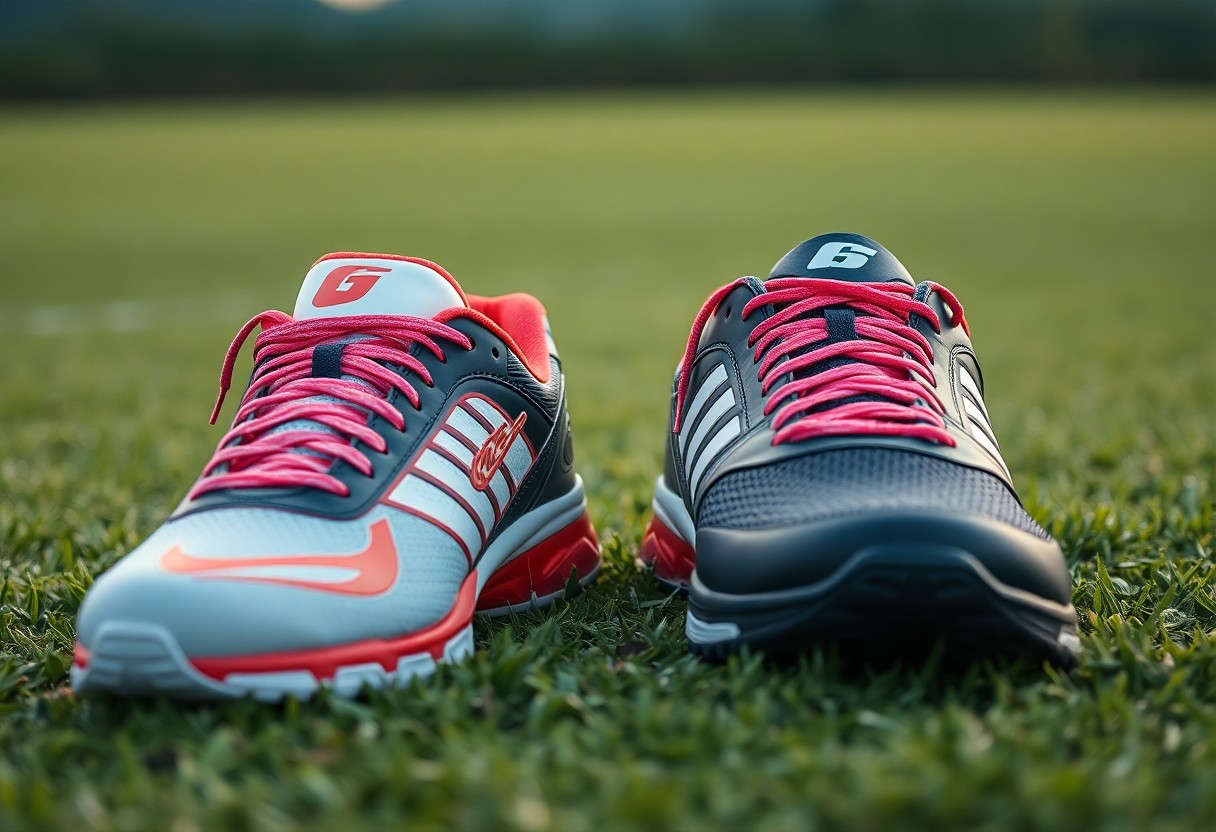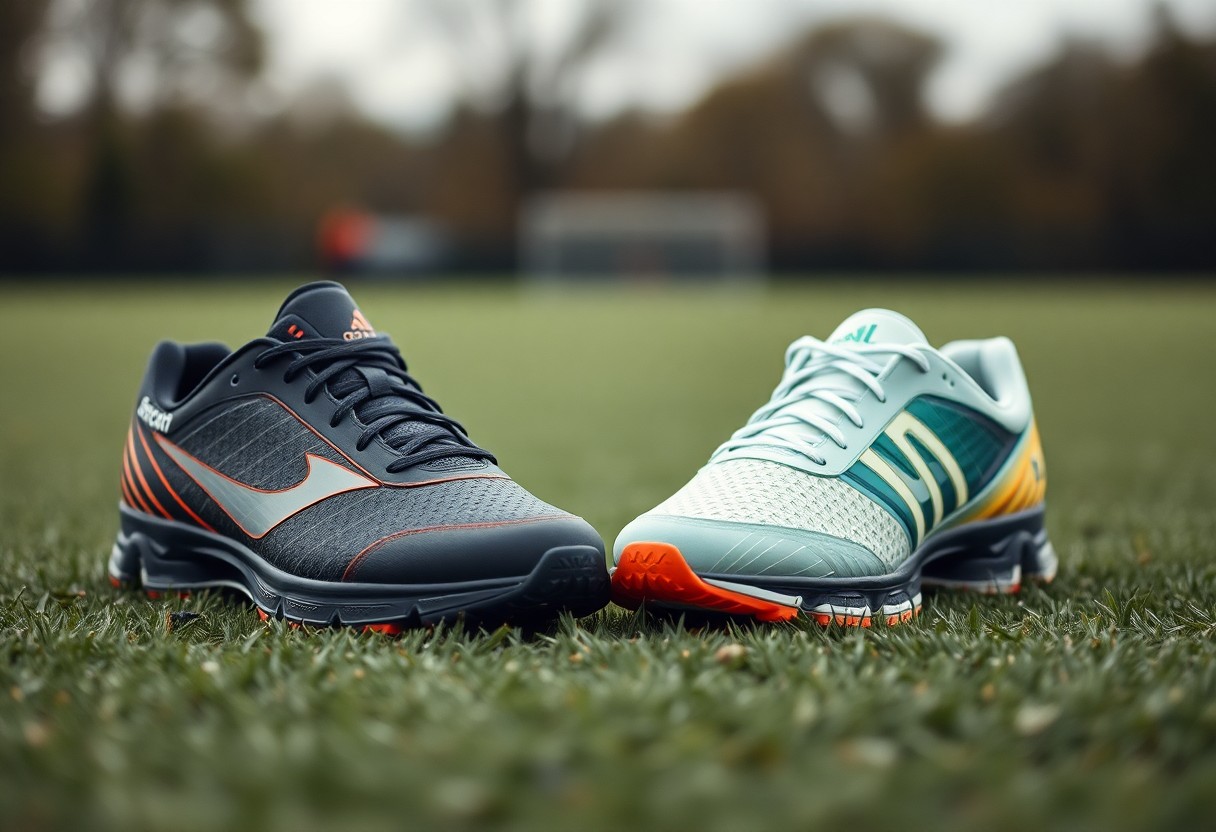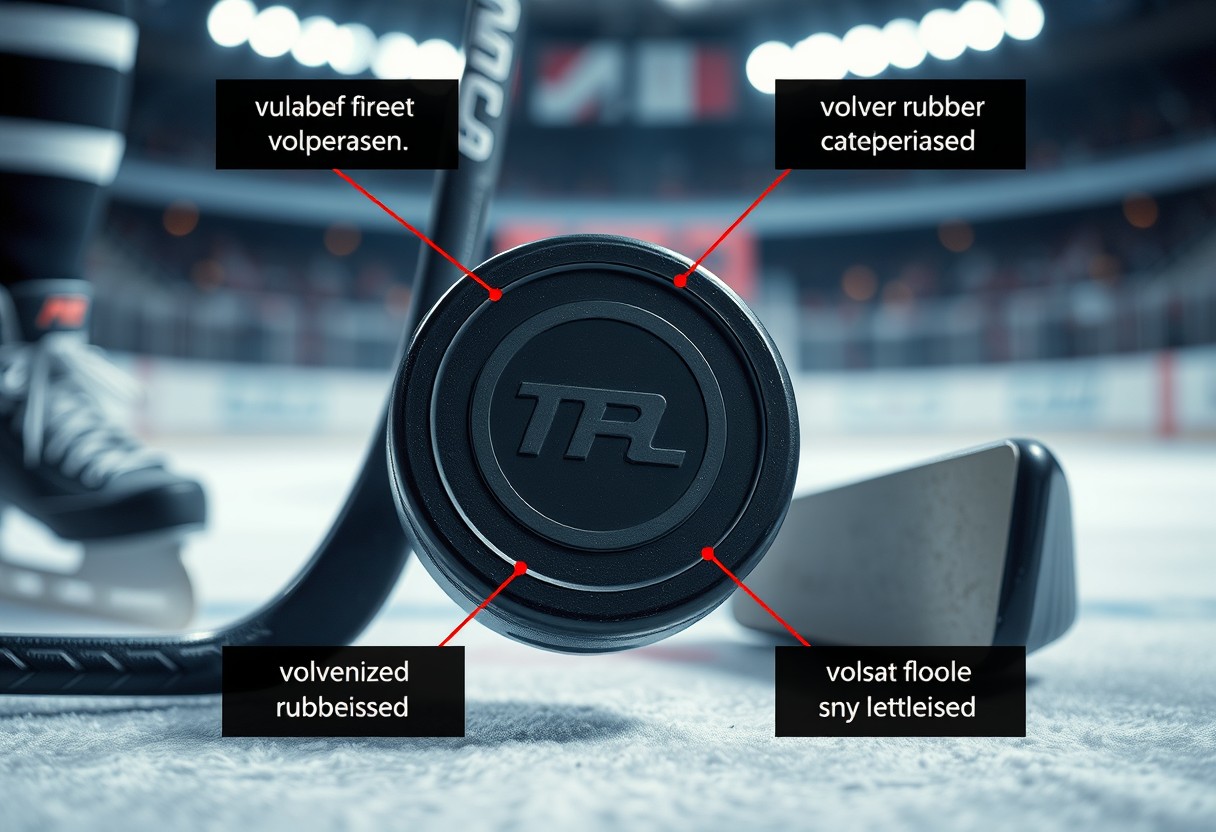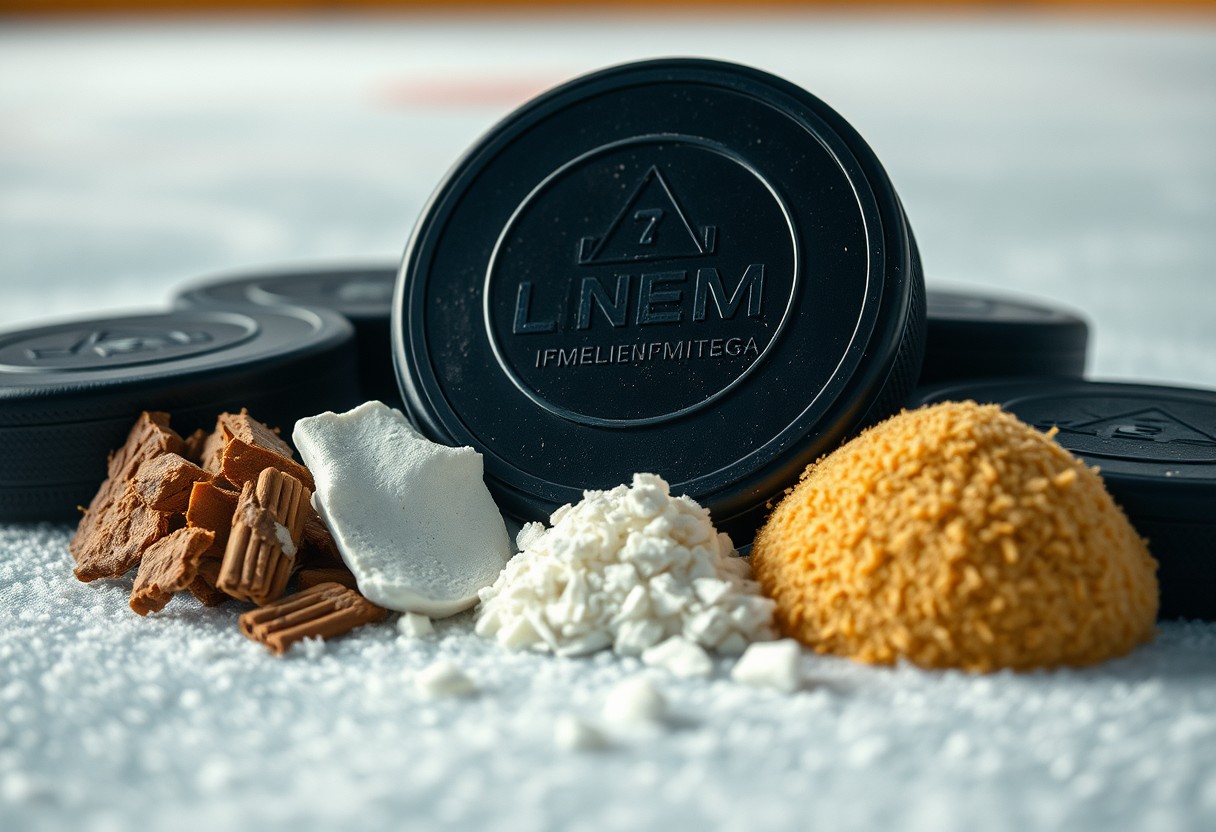Shoes designed for field hockey and lacrosse might appear similar at first glance, but understanding their differences can greatly impact your performance. As an athlete, you want to ensure that you have the right footwear to enhance your game. This post will explore the unique features of both types of shoes, such as traction, support, and design elements, so you can make an informed decision the next time you shop for your sports footwear.
Understanding Field Hockey Footwear
A well-designed field hockey shoe enhances your performance and comfort on the field. These shoes are specifically crafted to provide the necessary support, traction, and stability required during intense play. With unique features tailored to the sport, investing in a quality pair can significantly impact your game-time experience.
Design and Features
Across the board, field hockey shoes prioritize grip and support. Featuring a low-profile design, these shoes often have stiff soles that help with lateral movements. The upper is typically made of synthetic materials for durability and breathability, while enhanced cushioning protects your feet during high-impact play.
Types of Field Hockey Shoes
Hockey shoes come in various types, ensuring you find the perfect fit for your play style. Common designs include:
- Flat shoes for optimal grip
- Cushioned shoes for enhanced comfort
- Supportive shoes for stability during quick movements
- Lightweight shoes for speed
- All-terrain shoes for versatile play
This variety allows you to choose based on personal preferences and field conditions.
| Type of Shoe | Description |
| Flat Shoes | Designed for grip and stability. |
| Cushioned Shoes | Provides extra comfort during play. |
| Supportive Shoes | Enhances stability during rapid movements. |
| Lightweight Shoes | Focuses on speed and agility. |
Further understanding the different types of field hockey shoes can aid in making an informed decision at the time of purchase. These shoes vary widely based on their design features:
- Trainers for beginners
- Mid-range shoes for intermediate players
- Advanced shoes for high-level performance
- Turf shoes for synthetic surfaces
- Indoor shoes for specialized court play
This selection emphasizes the importance of choosing the right shoe for your specific needs and game style.
| Type | Best Suited For |
| Trainers | Beginners just starting out |
| Mid-range Shoes | Intermediate players seeking balanced performance |
| Advanced Shoes | High-level competition |
| Turf Shoes | Players on artificial surfaces |
Overview of Lacrosse Footwear
Now, understanding lacrosse footwear is vital for optimal performance on the field. Lacrosse shoes are specifically designed to handle quick movements, lateral changes, and the demands of the sport, providing you with stability and traction on various surfaces. Keeping up with the pace of the game requires the right footwear to enhance your agility and comfort, ensuring you can focus on your game without any distraction from your gear.
Design and Features
Above all, the design of lacrosse shoes includes features that enhance your performance and comfort. Most lacrosse footwear incorporates lightweight materials for agility while offering ample cushioning to protect your feet during intense play. The structured support helps you maintain balance, and the traction patterns on the soles are specifically engineered to prevent slipping during fast-paced movements.
Types of Lacrosse Shoes
Design elements in lacrosse footwear come in various styles tailored to your playing conditions and position. Below is a breakdown of the main types of lacrosse shoes you might consider:
| Type | Description |
|---|---|
| Mids | Provide additional ankle support for defensive players. |
| Low Tops | Designed for agility and speed, ideal for midfielders. |
| Cleats | Feature spikes for enhanced grip on grass turf. |
| Indoor Shoes | Made for play on gym surfaces, offering a flat sole. |
| All-Terrain | Versatile shoes designed for multiple playing surfaces. |
Recognizing the right type of lacrosse shoe for your needs can make a noticeable difference in your on-field performance.
Features
Features of lacrosse shoes contribute significantly to your performance and comfort during play. Here’s a closer look at what you can expect:
| Feature | Benefit |
|---|---|
| Lightweight Material | Reduces fatigue and enhances speed. |
| Cushioned Insoles | Provides comfort and reduces impact strain. |
| Breathable Fabrics | Keeps your feet dry and comfortable. |
| Customizable Fit | Ensures your shoes fit snugly to prevent blisters. |
| Durable Outsole | Offers longevity and supports various terrains. |
Recognizing the specific features that suit your playing style can significantly elevate your experience on the field.
Comparing Field Hockey and Lacrosse Shoes
While both field hockey and lacrosse shoes serve similar purposes, there are distinct differences in their design and functionality tailored to each sport’s specific requirements. Understanding these variations can help you select the best footwear for your athletic needs.
Similarities in Design
| Lightweight Materials | Both shoes are made from lightweight materials to enhance speed and agility. |
| Traction Outsoles | Each pair features specialized outsoles designed for grip on grass and turf surfaces. |
| Ankle Support | Both types provide varying degrees of ankle support to improve stability during play. |
Similarities in Design
Among the common features of field hockey and lacrosse shoes are lightweight materials and traction outsoles, which help you maintain agility and grip on the field. Additionally, both types of footwear offer ankle support to enhance stability while you perform quick movements during games.
Key Differences
Differences between field hockey and lacrosse shoes can significantly impact your performance and overall comfort during play.
The primary differences between field hockey and lacrosse shoes lie in their outsoles, uppers, and overall structure. Field hockey shoes often feature a flat, shaped outsole for better grip on smooth surfaces like grass, while lacrosse shoes may have a more aggressive cleat configuration for added traction on various terrains. Furthermore, lacrosse shoes typically have additional padding for impact protection, catering to the unique demands of the sport. These distinctions are vital to consider when investing in the right footwear for your athletic pursuits.

Performance Considerations
Not all performance criteria are the same when it comes to field hockey and lacrosse footwear. While both sports require quick movements and agility, the specific demands of each game influence how shoes are designed. For instance, the surface types—grass, turf, or indoor—dictate different shoe requirements, placing emphasis on specific features such as traction, support, and comfort, which significantly affect your gameplay experience.
Traction and Grip
An effective shoe for either sport needs to provide excellent traction and grip to keep you stable during rapid movements. Field hockey shoes typically feature a flat sole with molded studs designed for gripping the turf, while lacrosse shoes may have a mix of conical and bladed studs for versatility across diverse playing surfaces. Ensuring you have the right type of traction can impact your performance when pivoting, cutting, or sprinting.
Comfort and Support
The right shoe should also offer comfort and support tailored to your playing style and positioning on the field. Since both sports involve high-intensity movements, a well-fitted shoe can help reduce fatigue and prevent injuries while promoting better performance.
Comfort in your athletic shoes enhances your ability to focus on the game rather than any discomfort you might experience. Look for shoes with cushioning that offers ample support, particularly around the arch and heel, to absorb shock. If you have specific foot needs, consider customized insoles to ensure optimal fit and support. A comfortable shoe not only keeps you feeling good during gameplay but also enables you to concentrate fully on your skills and strategies, leading to a better overall performance.
Choosing the Right Footwear for Your Sport
After you decide to participate in field hockey or lacrosse, selecting the appropriate footwear can significantly impact your performance. Each sport requires specific shoe features to enhance foot stability, agility, and grip on various playing surfaces. Investing time to understand your options will help you find the footwear that best supports your needs on the field.
Factors to Consider
With many options available, it’s important to consider several key factors when choosing your footwear:
- Field surface type
- Level of play (beginner to advanced)
- Shoe fit and comfort
- Support and stability features
- Brand and model reputation
Recognizing these factors will lead you to a suitable choice that enhances your gameplay.
Recommendations for Field Hockey and Lacrosse Shoes
With various models and styles designed specifically for field hockey and lacrosse, you want to ensure your choice aligns with your sport’s demands. Look for shoes with cleats or specialized outsoles for traction, as well as cushioning that protects your feet during quick movements. Lightweight designs can further help enhance your speed and responsiveness.
Factors to keep in mind when selecting shoes include the differences in field surfaces and specific movements required in each sport. For field hockey, shoes with good lateral support and transfer of power is important, while lacrosse may demand more emphasis on quick changes in direction. Pay attention to the shoe’s material quality to ensure durability and support throughout your season. Exploring reputable brands that cater to both sports will help solidify your choice further.

Frequently Asked Questions
To help clarify any confusion regarding the similarities and differences between field hockey and lacrosse shoes, we’ve compiled some frequently asked questions. These insights will aid you in making informed choices about your athletic footwear, ensuring you perform your best on the field.
Can I Use Lacrosse Shoes for Field Hockey?
Shoes designed for lacrosse often share some features with field hockey shoes, such as traction and support. However, the specific requirements for each sport may vary, so using lacrosse shoes for field hockey can result in suboptimal performance. It’s necessary to consider the unique demands of your sport when selecting footwear.
What Should I Look for in Sport Shoes?
By choosing the right sport shoes, you ensure optimal performance and comfort during your games. Look for features such as proper fit, good traction, breathability, and adequate cushioning to match your specific sport’s needs.
The right sport shoes can significantly impact your performance and comfort during games. Ensure that they fit snugly without being too tight, allowing for natural movement. A solid grip is vital for quick directional changes, while breathability will keep your feet cool. Ample cushioning will help absorb shock and reduce the risk of injury, especially during high-impact activities. Always consider the playing surface and any specific requirements of your sport when making your selection.
Final Words
From above, it’s clear that while field hockey and lacrosse shoes may seem similar at first glance, they are designed for different playing surfaces and requirements. You should consider factors like grip, support, and comfort specific to your sport when choosing your footwear. Investing in the right pair can enhance your performance on the field and help prevent injuries. Ultimately, selecting the right shoes tailored to your sport will ensure that you are well-equipped for success in your games.




